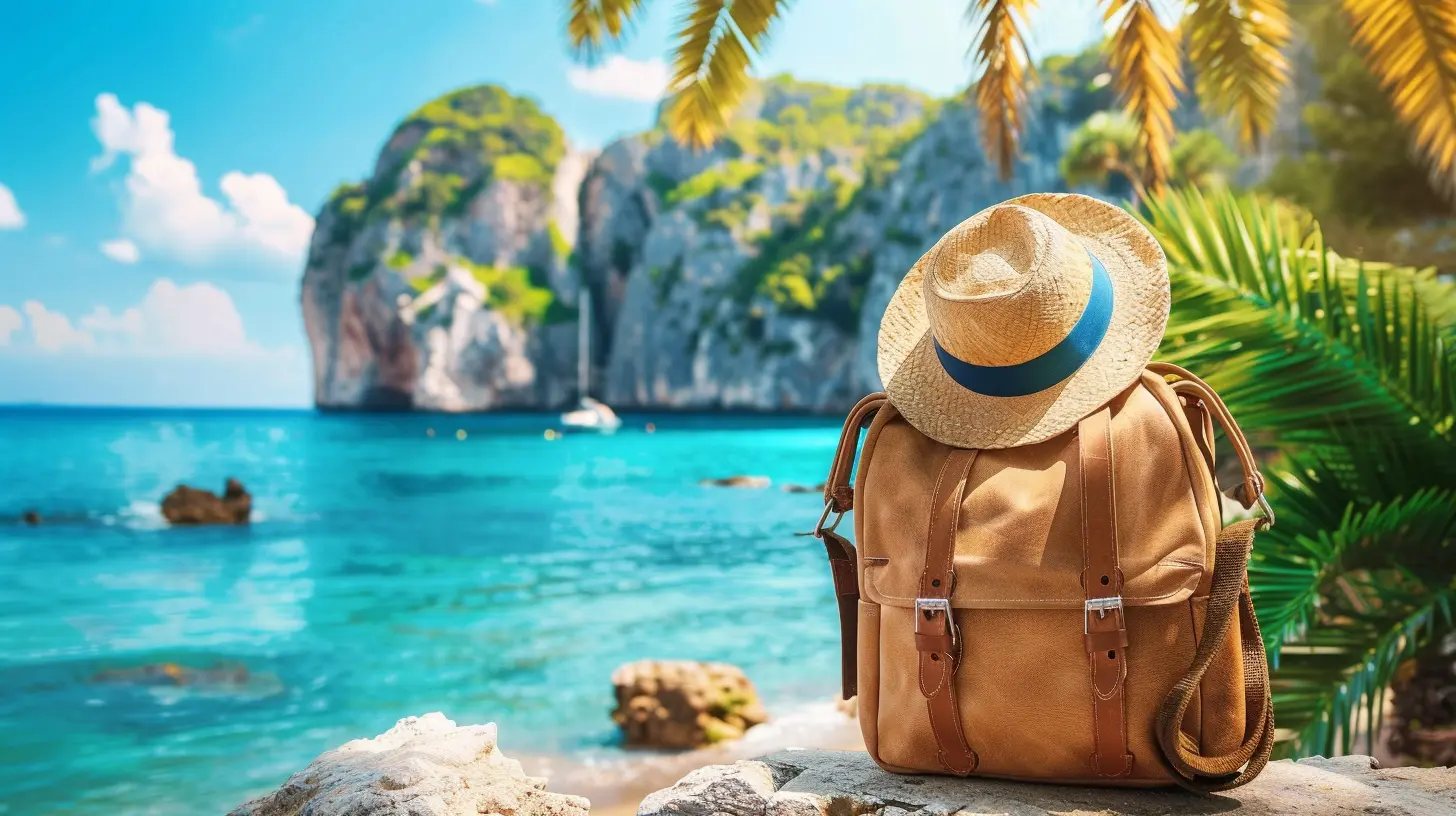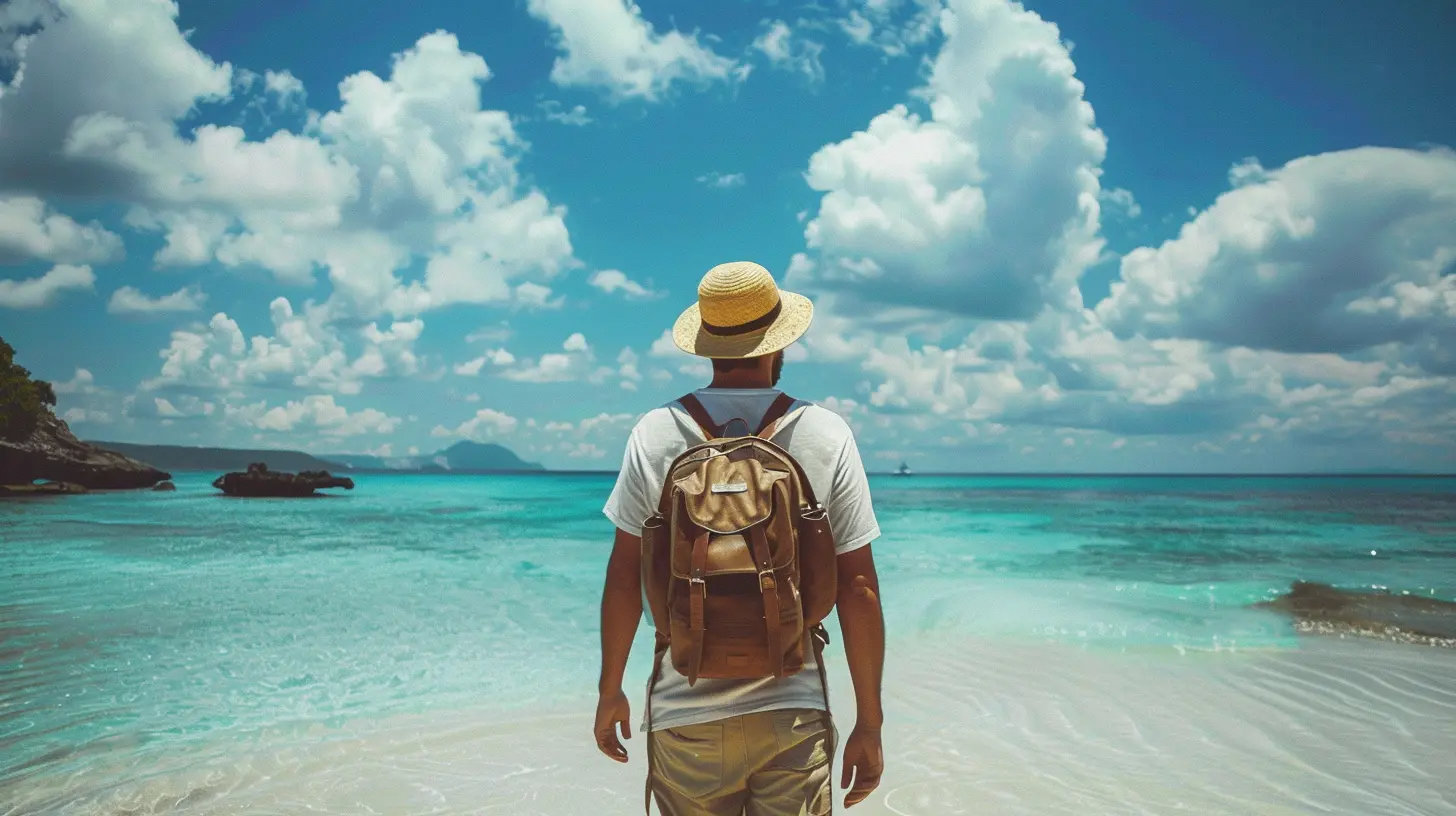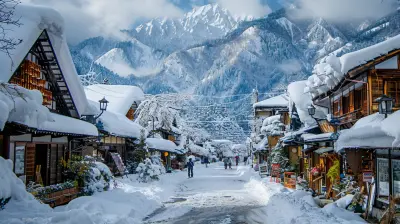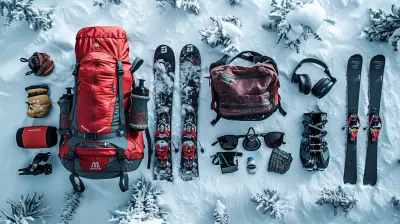Cracking the Code: How to Avoid Tourist Mark-Up in Popular Destinations
5 July 2025
Ah, the thrill of travel! New smells, new tastes, epic selfies, and the joy of wandering down cobbled alleys or sun-drenched beaches. But then—bam!—you glance at the menu and realize you've just paid three times more for a bottle of water than the locals. Sound familiar? That's the dreaded tourist mark-up, lurking like a sneaky pickpocket around every major attraction.
In the world of travel, getting ripped off is almost a rite of passage… but guess what? It doesn’t have to be. Whether you're navigating the souks of Marrakech or sipping espresso steps away from the Colosseum, there are surefire ways to dodge those inflated prices and travel smart. So, buckle up, globetrotter—we’re about to crack the code.
What’s a Tourist Mark-Up, Anyway?
Let’s get clear. A tourist mark-up is the extra fee tacked onto goods and services—just because you're a traveler. It's not always sinister; sometimes businesses simply assume tourists won’t mind paying more. Other times, the greed is real.This can show up as:
- Overpriced taxis
- Inflated food and drink prices
- “Special” tourist menus
- Higher entry fees
- Souvenirs triple the local rate
The worst part? It’s not just in the ultra-touristy places anymore. Even relatively hidden gems have caught on. But don’t worry—we’re going in armed.
1. Do Your Homework Before You Land
This might sound obvious, but a little pre-trip research goes a long way. Knowing what things should cost can be your biggest weapon.✅ Check Local Pricing Averages
Sites like Numbeo or Price of Travel give you a ballpark range for everything from meals to transportation. If a taxi in Bangkok usually costs $2 and someone wants $15? Red flag.✅ Read Local Blogs & Forums
Forget the glossy travel magazines—dig into Reddit threads, TripAdvisor forums, or even local Facebook groups. Real travelers spill the tea (and the receipts).
2. Avoid the “Tourist Bubble”
If you're standing in front of a world-famous landmark and decide to eat right there—well, you're asking for it. Restaurants and shops in tourist hubs often double or triple prices just because they know visitors won't walk two blocks away to compare.👉 Venture Just a Bit Further
Walk 5-10 minutes away from any major attraction, and you'll likely find:- Lower prices
- Higher food quality
- More locals dining (which is always a good sign)
Think of tourist zones like Instagram filters—things look nice, but they're not necessarily real.
3. Learn a Few Local Phrases (Seriously)
You don’t need to be fluent, but even a few words can shift you from “clueless tourist” to “budget-savvy traveler.”Why it Works:
- Locals appreciate the effort.- You're less likely to be seen as just another “walking dollar sign.”
- It helps in bargaining, especially in markets.
A simple “hello,” “thank you,” and “how much does this cost?” can make a surprising difference.
4. Say No to “Fixed” Prices Where Bargaining Is the Norm
In many parts of the world—Asia, the Middle East, Latin America—prices aren't set in stone. That means if you're not bargaining, you're overpaying.🛍️ Markets & Street Vendors
They expect a negotiation dance. Start by offering 40-50% of the quoted price and work your way up. Do it with a smile. Charm goes a long way.🚖 Taxis and Tuk-Tuks
Always ask for the meter. If there's no meter, agree on a price before getting in. Better yet? Use ride-share apps where possible.5. Watch Out for the “Two Menus” Trick
This one’s cheeky. Some restaurants will hand tourists a separate menu with inflated prices. Locals get the standard one.How to Outsmart It:
- Peek at what locals are paying.- Ask for a menu in the local language.
- Use translation apps like Google Translate to scan menus.
If the prices seem sketchy, trust your gut and bounce.
6. Ditch the Tourist Traps and Go Local
This applies to food, shopping, even experiences. Joining the long queue of sunburnt travelers isn’t always the most authentic option.🍜 Eat Where Locals Eat
Want the best food at local prices? Follow the crowd—of locals. If a hole-in-the-wall joint has queues of working folks and no English signs, you’re likely in for a treat and a deal.🧵 Shop at Local Markets
Skip the airport gift shops and bargain-bin souvenir stores near the Eiffel Tower. Visit morning markets, craft fairs, or co-ops for authentic products at real prices.7. Use Local Currency When Paying
Paying in your home currency abroad is one of the easiest ways to get scammed without even realizing it.💳 Dynamic Currency Conversion (DCC)
That thing where the card reader asks, “Would you like to pay in USD or local currency?” Always choose local currency. Paying in your own currency usually means worse exchange rates and extra fees.💵 Cash Is (Sometimes) King
In many regions, especially in markets, cash can help you negotiate and avoid “tourist pricing.” Just make sure you carry small bills to avoid the “no change” excuse.8. Book Direct When You Can
Third-party platforms are convenient, but they often charge extra or offer inflated “tourist” prices. Want better deals?- Call hotels directly (ask for discounts or promotions)
- Book tours with local agencies instead of big-name operators
- Use public transport instead of expensive shuttle services
Often, a simple email or message saves you money—plus it supports local businesses more directly.
9. Be Aware of Tourist Scams Masquerading as Help
Getting charged extra is one thing—being straight-up fooled is another. Many scams start with someone pretending to help: a “friendly” local offering directions, a “helpful” taxi driver with “connections,” or a guide who appears out of nowhere.🚩 Keep Your Guard Up
If something feels too convenient—or someone seems too eager to assist—it probably is. Trust your instincts and don’t be afraid to say no.10. Use Maps and Translation Apps to Gain Confidence
Nothing screams “I’m lost and ready to be exploited!” like flipping a paper map on a busy street.📱 Use Technology:
- Google Maps to pre-plan routes (and fare estimates)- Google Translate camera feature for menus and signs
- Currency converter apps for real-time pricing
When you look like you know what you’re doing—even if you don’t—you're less likely to be taken advantage of.
11. Blend In—At Least a Bit
We’re not saying you should ditch your personality or dress like a local clone—but if you’re rocking a giant camera, branded tour hat, and standing in the middle of the street with a confused look, you're a walking target.👕 Dress Smart
- Avoid loud, flashy clothing- Skip the fanny pack (unless you're ironically cool)
- Keep valuables out of sight
Looking like a traveler, not a lost tourist, changes the game entirely.
12. Understand Seasonal Pricing
Visiting during high season? Prices could spike across the board—not just for tourists, but for everyone. A hotel room might cost twice as much in July as it does in March.💡 Pro Tip:
Book in advance or travel just before/after peak season (shoulder season) to get better rates and fewer crowds. It’s the ultimate travel hack.13. Get Comfortable Saying “No”
Whether it’s a pushy vendor, an overcharging taxi, or a server trying to upsell, saying “no” firmly but politely is your best defense.You’re under no obligation to buy something just because someone starts a conversation or offers you a free sample. Be kind, but be clear.
14. Know When to Spend
Okay, here’s the truth: Sometimes, paying a bit more is worth it. If a rooftop dinner in Santorini costs extra but gives you a memory for life—go for it. Just know you chose it, and not because you were duped.Avoiding the tourist mark-up isn't about being cheap. It's about being conscious. Spend where it counts and save where it doesn’t.
Final Thoughts
Travel is one of the greatest joys in life—but that joy quickly fades when you realize you’ve been played. The good news? With a little awareness and a dash of street smarts, you can outwit the tourist traps and make every penny (or peso or dirham) count.So next time you hit the road, remember: it's not about skipping fun, it’s about skipping foolishness. Keep your eyes open, your wallet secure, and your sense of humor intact—and you'll come back richer, in every sense of the word.
all images in this post were generated using AI tools
Category:
Travel DealsAuthor:

Claire Franklin
Discussion
rate this article
2 comments
Lacey Edwards
What a fantastic read! Your tips on navigating tourist traps are invaluable for travelers looking to make the most of their adventures without breaking the bank. It's refreshing to see such practical advice—definitely bookmarking this for my next trip. Keep up the great work!
September 20, 2025 at 3:50 AM

Claire Franklin
Thank you so much for your kind words! I'm glad you found the tips helpful—happy travels!
Linnea Reed
Valuable tips, truly appreciated!
July 17, 2025 at 4:36 AM

Claire Franklin
Thank you! I'm glad you found the tips helpful!


